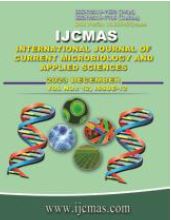


 National Academy of Agricultural Sciences (NAAS)
National Academy of Agricultural Sciences (NAAS)

|
PRINT ISSN : 2319-7692
Online ISSN : 2319-7706 Issues : 12 per year Publisher : Excellent Publishers Email : editorijcmas@gmail.com / submit@ijcmas.com Editor-in-chief: Dr.M.Prakash Index Copernicus ICV 2018: 95.39 NAAS RATING 2020: 5.38 |
The management and sustainable use of groundwater resources are critical components in addressing global water challenges. In this context, inverse groundwater modeling has emerged as a powerful tool for characterizing subsurface properties, optimizing resource utilization, and mitigating the impacts of anthropogenic activities on aquifers. This review paper provides a comprehensive and up-to-date survey of the advancements in inverse groundwater modeling techniques, methodologies, and applications. The paper begins by presenting an overview of the fundamental principles underlying inverse modeling, elucidating the mathematical frameworks and numerical algorithms employed in estimating subsurface parameters. It explores various geophysical and hydrogeological data types commonly utilized in inverse modeling, such as hydraulic head measurements, and geophysical surveys. The integration of multiple data sources for enhancing model reliability and reducing uncertainty is also discussed. Furthermore, the review highlights recent developments in regularization techniques, sensitivity analysis, and uncertainty quantification within the context of inverse groundwater modeling. Case studies from diverse hydrogeological settings illustrate the practical applications of these methodologies in real-world scenarios, showcasing their efficacy in addressing complex groundwater management challenges, including contaminant transport, aquifer recharge, and sustainable resource exploitation. The review concludes by outlining current research gaps and future directions in the field of inverse groundwater modeling, emphasizing the need for interdisciplinary collaboration, data integration, and advanced computational approaches. This synthesis of contemporary knowledge serves as a valuable resource for researchers, practitioners, and policymakers engaged in groundwater management and environmental sustainability.
 |
 |
 |
 |
 |